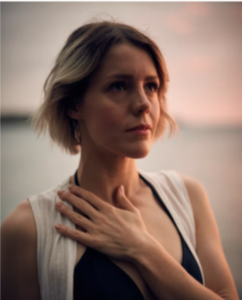From human doing to human being…how a little stillness can go a long way…
Our basic state of wellbeing is obscured because of the essential paradigm (or misunderstanding) we live by, namely, that we are human doings, not human beings. We see ourselves, our value, as being the sum total of our experiences and accomplishments—what we’ve gotten done. Many people grow up with parents who, in trying to do right by their kids, are constantly showing them how to improve themselves and find better ways to be productive. On its face there’s nothing wrong with wanting to teach our kids to make things happen or be good at doing things, but children often grow up feeling that they are loved precisely because of their ability to do, accomplish, and succeed. That if they were to stop being productive, they would cease to belong and be loved.
Our doings are what we believe we have to offer, what make people proud of us, love us, and even more fundamentally, what we think we are made of, the very substance of our being. Who we are, our identity, is what we accomplish, what we can do and have done. We are good, lovable and important if we are productive; if we’re productive, we matter. I have seen countless people living on the anxious treadmill of productivity, terrified to step off and pause—to stop doing—and thus risk losing their basic sense of worth.
If we even dare to think about stopping, stepping off the wheel of productivity, our mind tells us that we will be lazy, passive, taking the easy way out, getting nothing done, being worthless. Boiled down, the mind convinces us that if we stop doing, we’re bad. If we stop striving, we will end up with nothing—doing nothing, getting nothing, being nothing. We are conditioned to believe that if we don’t whip ourselves into action, don’t demand continual accomplishment and forward movement, we will collapse into sloth and torpor as it’s the only other option to the wheel we’re trapped on.
We don’t trust that if we were to allow ourselves to stop, to be where we are without trying to get somewhere else, that our own organic desire to do, create and take action would naturally arise, that life would continue happening and we would continue being part of that flow. We have not been taught to trust what’s actually true, namely, that something in us longs to do and create; it doesn’t need to be threatened and corralled into productivity in order to save us from being bad or worthless.
Linking our value and existence to perpetual doing keeps us in a state of fear, terrified to unhitch from the wagon of productivity, the drive to keep moving forward, not trusting who we will be or even if we will be when we unhitch. In this modern paradigm, we see life itself as an act of doing, something we have to make happen, by continually doing and kicking the wheel of experience and what’s next. Our life, as we experience it, is created through the accumulation of experiences we generate. Life is something we have to do something with, as in, What are you going to do with your life? As such, it feels as if doing is necessary to keep ourselves in actual existence. Stillness, on the other hand—not getting somewhere, not getting something done, not being productive, is imagined as a kind of void or absence, a place where we don’t experience life. The way we learn it, doing equals life. Not doing, when the wheel stops, equals death, or non-existence.
We live as human doings in part because we’re not taught that just being is a something, a place, an experience of its own. We’re not taught that our own presence, our being, is a destination, a place of value, a place to inhabit that has its own sensory aliveness.
From the time we’re very young we learn that our head or mind is where life happens, where the action is, where the pilot sits. We award our mind with the throne of life, king/queen of all domains. Our body, on the other hand, we relate to as a functional object, a Sherpa that transports our head from one place to another, thanklessly facilitating the doing that the mind commands. If not simply moving the mind around, the body is something we use as another agent of doing, to achieve excellence in sport or other such endeavors, thereby adding to the pile of accomplishments and experiences that make up our sense of worthiness. In addition, our body is viewed as an entity that for the most part doesn’t exist other than to provide us with pleasure or pain. The body is an object that appears out of oblivion only when directly stimulated, or when a disruption occurs and thus interrupts its basic invisibility, as is the case with illness, injury, and aging.
But the problem is that when we ignore the body and relate to it as a non-entity, a non-place, undeserving of our own attention except when absolutely necessary, we effectively sever access to our inherent un-produced sense of worth. Disconnected from the body, we become untethered from a sense of fundamental mattering, not because of what we do, but just because we are. The body is the portal to experiencing our aliveness, one that precedes and outlives any and all accomplishment, an aliveness that remains constant even when we step off the wheel of doing. It’s through the body that we directly experience a sure sense of our own wholeness, and the knowing that we are already everything we need to be, and we already matter.
When we drop out of the head and into the body, pouring our attention out of mind, without an agenda and without trying to make something happen that the mind is dictating, we immediately feel a sense of just being. Inside the body, we experience the hum of life, an energy, something that’s happening on its own without our having to manage, control, force or do it. Through meditation, body practice, or simply choosing to experience the body from the inside out, we can learn to ride the waves of the breath, sense the body breathing itself. The practice of just encountering what’s here that requires no effort, builds a trust in us, that there exists a life force bigger than us, an aliveness that we exist within and are made of, and perhaps most importantly in this context, for which we are not in charge.
Joining with the body and experiencing how it is right now, feeling what’s actually happening inside you, without writing a narrative about what’s happening, or constructing a story about what it says about you or anyone else, but just experiencing now as it is in your body, is a courageous and profoundly radical choice. When we make our body a destination, make the choice to inhabit the body with kindness and curiosity, in stillness, without demanding anything from it, or judging what we find, we can know a direct experience of being, a sensation of our own existence, which doesn’t require any action to create or maintain. It takes courage to leave the mind and drop into the body, a willingness to reject or doubt what the mind tells us will happen to us if we leave it for even a moment. But for that courage, we are rewarded with a deep trust in and intimacy with our own being, and a knowing of its inherent worth. Just the opposite of the idea of absence that the mind scares us with, what we find in the body, away from the mind, is presence.
In experiencing the sensations of the body, not noticing them from the head but allowing ourselves to actually feel them directly from inside the body, we discover that life is happening here, now, without our help. And in fact, we don’t need to keep kicking the wheel, creating life. Tuning into the hum of just being, we uncover a sense of wholeness and worth that is inherent, un-earned, un-manufactured, un-efforted, and utterly unrelated to accomplishment. We discover a sense of our own value that just is, a gift of being alive.



One Response
Great post! thanks for sharing.
Really body is a very important and we must be aware of it. Thanks again